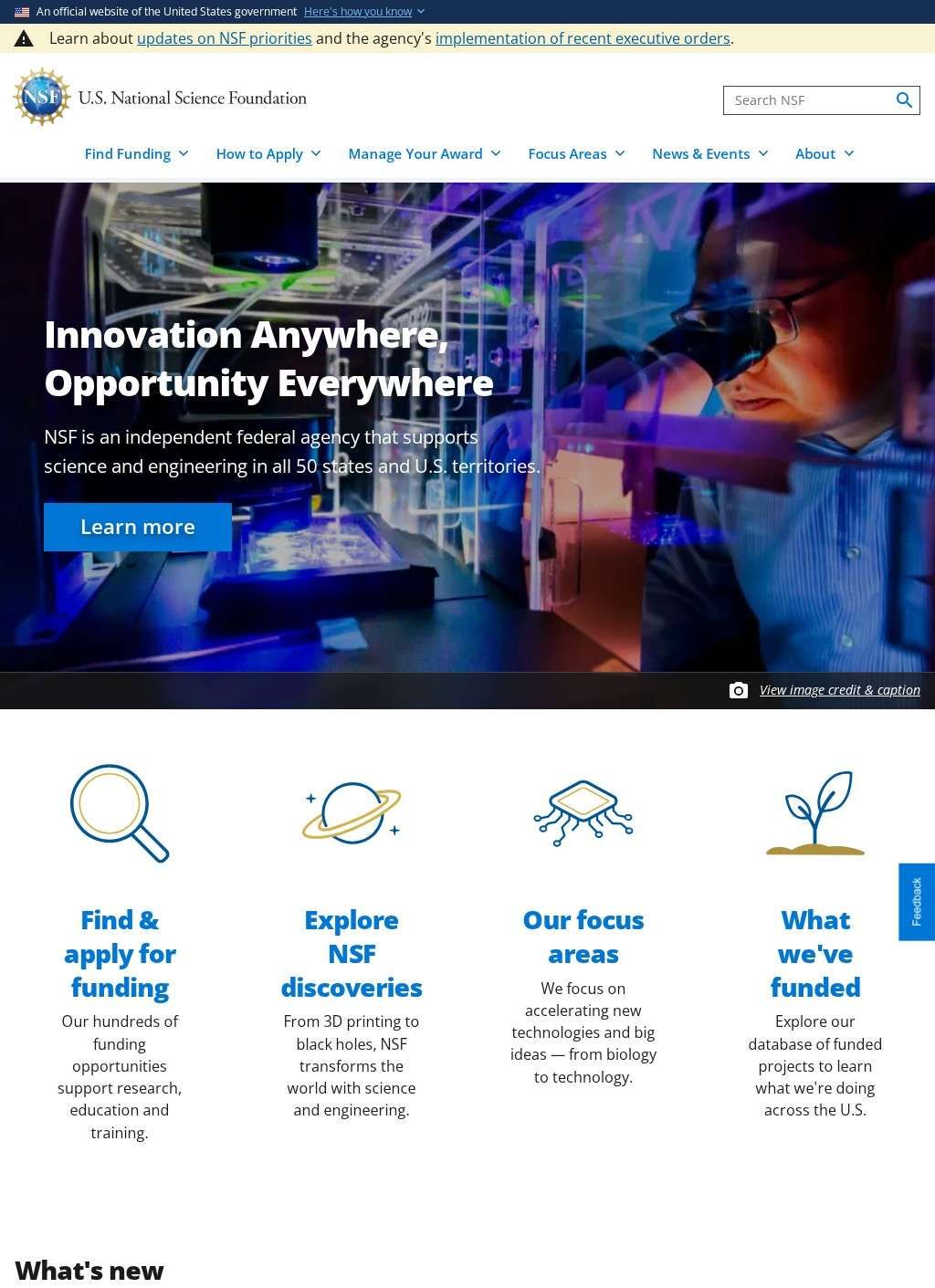The National Science Foundation's AI Research Institutes program represents the largest federal investment in artificial intelligence research and workforce development in the United States. This ambitious initiative brings together academic institutions, government agencies, and industry partners to tackle fundamental challenges in AI development and application. Since its launch in 2020, the program has established 25 specialized institutes across the nation, each focusing on different aspects of AI research from trustworthy AI systems to applications in agriculture, healthcare, and cybersecurity.
What distinguishes this NSF program is its comprehensive approach to AI advancement through themed research areas. The current solicitation focuses on three primary themes: AI for Astronomical Sciences, AI for Discovery in Materials Research, and Strengthening AI. Each theme addresses specific national priorities and scientific challenges. For instance, the astronomical sciences theme explores how AI can process vast amounts of telescope data to accelerate discoveries about the universe, while the materials research theme aims to revolutionize how new materials are discovered and manufactured. These aren't abstract research goals – they're targeted efforts to solve real problems that affect scientific progress and economic development.
The financial commitment behind these institutes is substantial, with individual awards ranging from $16 to $20 million over four to five years. This level of funding enables researchers to pursue long-term, high-risk projects that wouldn't be possible through traditional grant mechanisms. The program operates as a multi-sector collaboration, with NSF leading partnerships with organizations like the Simons Foundation, National Institute of Standards and Technology, Department of Defense, Capital One, and Intel Corporation. This diverse funding base ensures that research addresses both fundamental scientific questions and practical industry needs.
Each AI Institute functions as a hub connecting dozens of universities and research organizations. These aren't isolated research groups – they're dynamic networks that foster collaboration across disciplines and institutions. For example, the AI Institute for Climate-Smart Agriculture and Forestry connects researchers working on greenhouse gas estimation with those developing decision support tools for farmers. The institutes also emphasize workforce development, training the next generation of AI researchers through integrated education programs that span from K-12 outreach to advanced graduate research.
The program's structure reflects lessons learned from decades of NSF investment in AI research dating back to the 1960s. Modern institutes build on foundational work in neural networks, natural language processing, and machine learning algorithms that power today's AI applications. They address contemporary challenges like ensuring AI systems are trustworthy, understanding the neural and cognitive foundations of intelligence, and developing AI that can augment human capabilities rather than replace them. This historical perspective informs current research priorities and helps avoid repeating past mistakes.
For researchers interested in participating, the program provides detailed guidance through multiple contact points. General inquiries go to AIInstitutesProgram@nsf.gov, while theme-specific questions can be directed to designated program officers. The application process involves multiple stages, with different themes having distinct submission deadlines and review timelines. The program website offers comprehensive information about eligibility requirements, proposal guidelines, and evaluation criteria. Researchers can also browse previously funded projects to understand the scope and scale of successful proposals.
The broader impact of these institutes extends beyond individual research projects. They're creating new scientific disciplines at the intersection of AI and traditional fields, establishing ethical frameworks for AI development, and building infrastructure for responsible AI deployment. Through annual meetings, virtual collaboration platforms, and shared resources, the institutes form a national network for AI innovation. This coordinated approach ensures that advances in one area quickly benefit researchers in others, accelerating the overall pace of AI development while maintaining focus on societal benefits and ethical considerations.
